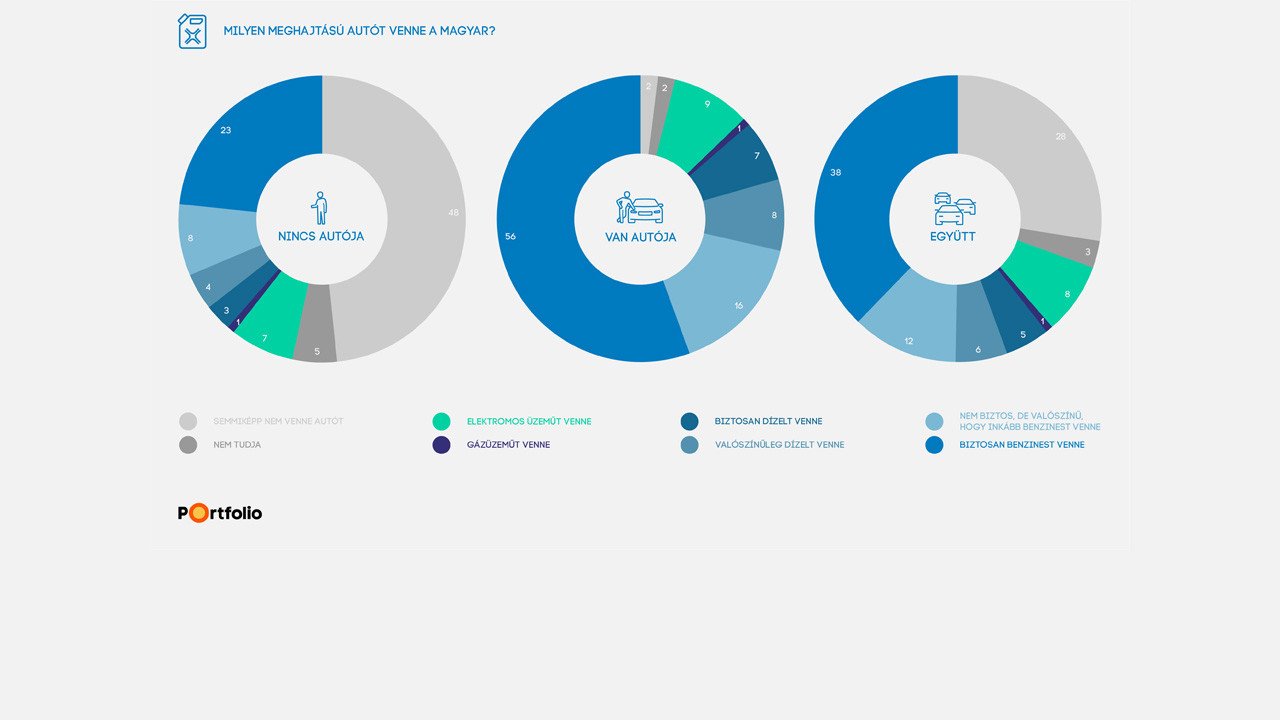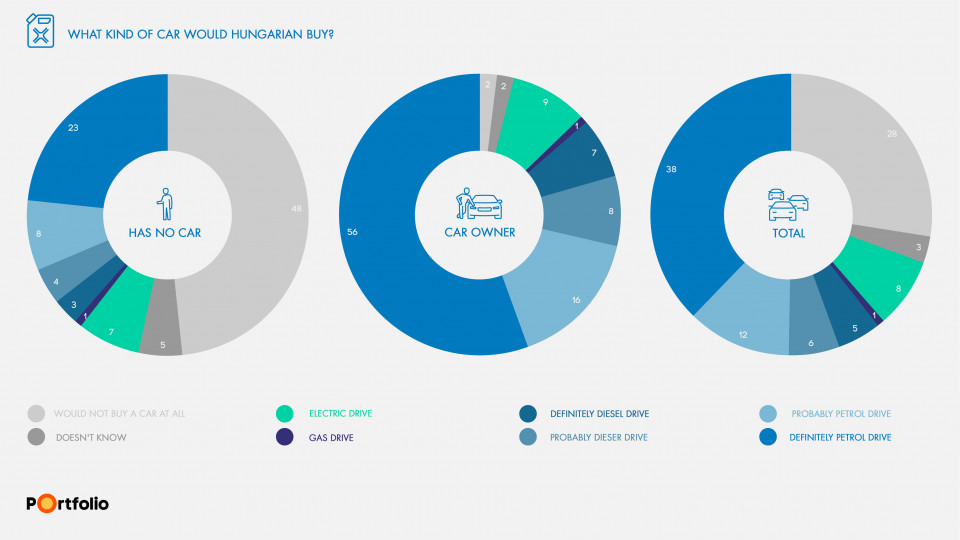Shifting to electric cars is obviously a more complex process than the disappearance of buttons from cell phones. It needs a new network of filling stations and technologies still have to develop in areas like range – the battery’s performance – and the pace of charges. Although cars with green license plates still make up only a tiny proportion, a new survey carried out for Robert Bosch Kft. by Medián Közvélemény- és Piackutató Intézet – which has been monitoring Hungarian car-use habits for ten years – shows that a change is coming soon. Bosch has been examining Hungarian car-use habits every two years since 2008 and now, the results give us a good picture of trends over the last ten years. The latest survey from March 2018, also gives an idea of how the market is going forward.
Farewell to exhaust fumes after 140 years?
The cars have hardly changed at all in the last 10 years on Hungarian roads in terms of how they are driven. Most of them(eighty-two per cent) still run on petrol, as they did ten years ago (eighty-five per cent), and the rest are nearly all diesel. Alternative power sources – gas, electric or hybrid – make up a tiny proportion that hardly appears in the statistics (about one per cent).
The only substantial change was between 2014 and 2016, when the proportion of diesel cars jumped from fourteen to eighteen per cent, but this growth has stopped and even fell back to seventeen per cent in 2018.
Electric or hybrid cars are now measurably attracting buyers’ interest as they become more affordable and economical to run. They also qualify for perks like free fill-ups and parking. A question not included in past surveys but put to the 2400 respondents in this year’s representative sample, was what kind of car they would buy now. No less than nine per cent opt for an electric car, an astonishing figure compared to the present level of less than one per cent. If the question is restricted to those do not rule out actually buying a car, the proportion preferring electric drives is twelve per cent – nine among present car owners and sixteen among new entrants.
Further boosting the significance of the change is that the figures in the survey for electric drives are conservative – these responses were not given as options, and were only recorded if the respondent mentioned them spontaneously. The idea of electric drives is most strikingly popular among graduates, citizens of Budapest and the under-30s.
Proportions still tiny, but rising at a tremendous pace
The latest figures of the European Automobile Manufacturers' Association (ACEA) on car sales well reflects how the market is changing: in the first quarter of this year, 17 per cent fewer diesel and 14.7 per cent fewer petrol cars were sold than the same period last year. In the same time, sales of electric cars went up by 47 per cent and sales of hybrids by 25.7 per cent. According to the Hungarian Central Statistical Office (KHS), there were 3,471,997 private cars on the roads in Hungary in 2017, of which about 6000 had electric or hybrid drives – equal to the number of green number plates issued up to April this year. This is a small number, but the rate of growth tells a different story: figures from the Jedlik Ányos Cluster put the number of green-plate cars on the roads at 370 in February 2016, 1765 a year later, and nearly six thousand this April, a figure it must surely have passed by now. According to the ACEA, 184 electric cars were sole in the first quarter of last year compared with 481 this year, while sales of hybrids went up from 711 to 1122 in the same period.
Mónika Hack
+36 70 510 5516
Bosch has been present in Hungary since 1898 with its products. The company is this year celebrating the 100th anniversary of the opening of its first Hungarian operation. After its re-establishment as a regional trading company in 1991, Bosch has grown into one of Hungary’s largest foreign industrial employers with currently nine Hungarian subsidiaries. In fiscal 2017 it had a total turnover of HUF 1304 billion and sales of the Bosch Group on the Hungarian market – not counting trade among its own companies – was HUF 244 billion. The Bosch Group in Hungary employs roughly 13,500 people (as per January 1, 2018). In addition to its manufacturing, commercial and development business, Bosch has a network of sales and service operations that covers the entire country.
The Bosch Group is a leading global supplier of technology and services. It employs roughly 402,000 associates worldwide (as of December 31, 2017). The company generated sales of 78.1 billion euros in 2017. Its operations are divided into four business sectors: Mobility Solutions, Industrial Technology, Consumer Goods, and Energy and Building Technology. As a leading IoT company, Bosch offers innovative solutions for smart homes, smart cities, connected mobility, and connected manufacturing. It uses its expertise in sensor technology, software, and services, as well as its own IoT cloud, to offer its customers connected, cross-domain solutions from a single source. The Bosch Group’s strategic objective is to deliver innovations for a connected life. Bosch improves quality of life worldwide with products and services that are innovative and spark enthusiasm. In short, Bosch creates technology that is “Invented for life.” The Bosch Group comprises Robert Bosch GmbH and its roughly 440 subsidiary and regional companies in 60 countries. Including sales and service partners, Bosch’s global manufacturing, engineering, and sales network covers nearly every country in the world. The basis for the company’s future growth is its innovative strength. At 125 locations across the globe, Bosch employs some 64,500 associates in research and development.
Additional information is available online at www.bosch.hu, www.bosch.com, www.iot.bosch.com, www.bosch-press.com, www.twitter.com/BoschPresse



